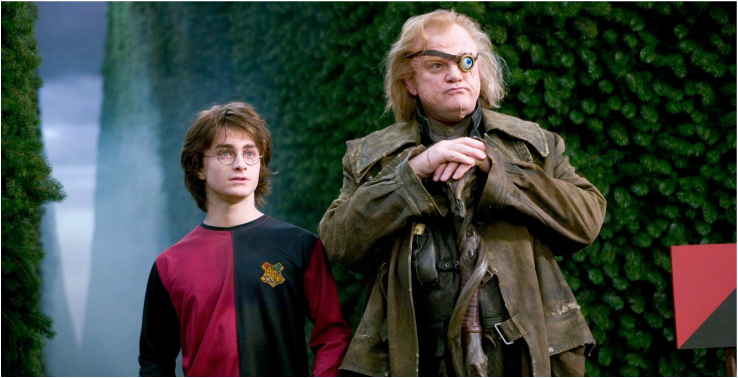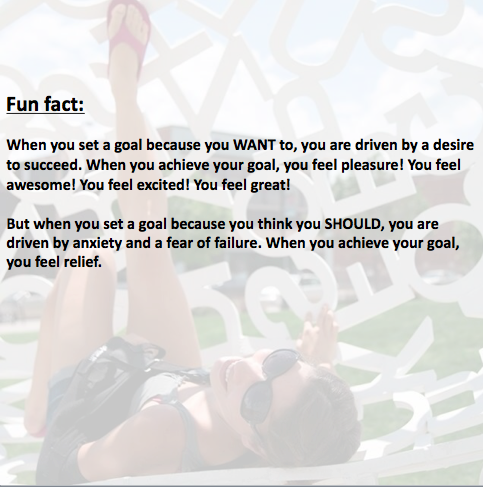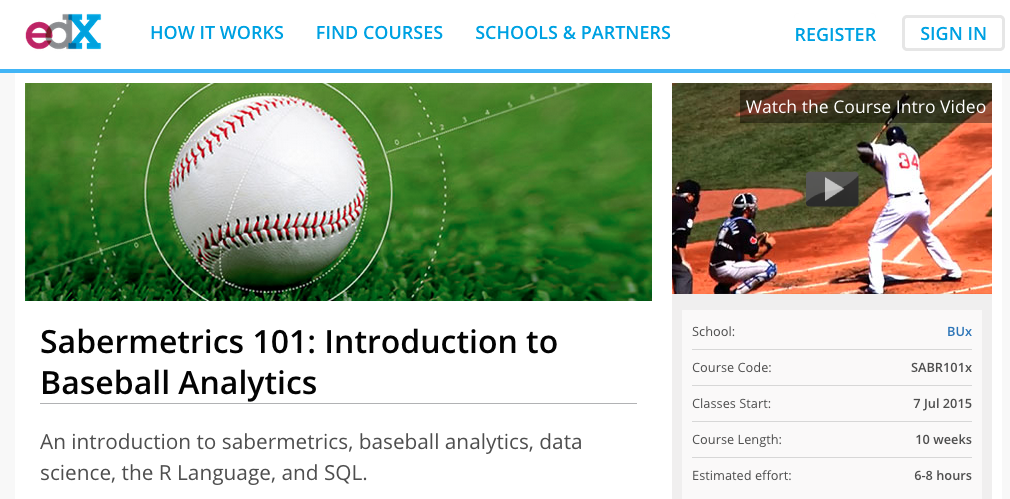|
When the Goblet of Fire spat out Harry Potter's name, the Boy Who Lived knew he was in trouble. He was competing against people who were bigger, stronger and more experienced at magic than he was -- in situations that were literally life-or-death. On the eve of the first challenge -- the dragons -- Professor Moody gave Harry the best advice anyone's ever given anyone: "Play to your strengths." Clearly, he missed his calling and he should have been a Life Coach and College Counselor (like me!). Getting into top schools is competitive. You're going to be competing with the Victor Krums and Fleur Delacours of the world. Many parents tell their kids they have to stand out... by doing the same things everyone else who is trying to stand out is doing to stand out -- GPAs, SATs, and APs. For many of the nation's brightest teenagers, that's not playing to your strengths. As I wrote last week in APs Make You Look Complacent, Not Curious, Colleges don't want to fill their ranks with zombies. They've gotten better, lately, at recognizing the difference between a hoop-jumper who wants to do one of six things after graduation, or whose only real goal is getting into their first-choice school (which, by the way, is not an accomplishment)... and someone with real interests. Real passion. Real courage. One of the commenters on that article correctly pointed out that some kids actually like taking APs. True -- but they're not the ones I wrote the article for. I wrote it for ones who are taking APs because they "should," even though it stresses them out and they hate every minute of it. I wrote it for ones who are taking APs at the expense of other classes or activities they would genuinely love. Because here's the thing about college admissions in the US: they don't just admit the students with the best scores. They're looking for so much else! They're looking to build a curious, passionate, diverse student body with a range of skills. This means selecting some students whose strength is breadth (they've taken lots of AP classes, participated in many extracurriculars, etc.), and some students whose strength is depth (they've spent much of their energy focused on one major pursuit). So if you're one of those students who loves the challenge of an AP -- who loves studying for the sake of studying, doing whatever it takes to get the A, etc. -- maybe the strength you need to play to is breadth. You have shown a commitment to learning by taking advanced-level courses in the humanities, math and science. Maybe you don't know what you want to do with that knowledge. But you do know you're hungry and you've got a strong work ethic. *** But maybe APs are completely uninteresting to you because there's a pursuit that you want to spend more time on. Something academic, perhaps, like marine biology or ornithology. Or, perhaps, some obscure, non-academic pursuit. Let's pick an example a lot of high-achieving, helicopter-type parents might scoff at: fashion. There's no reason you can't knock an admissions officer's socks off with your passion for fashion. Because there's no limit to how deep you can take that passion. You can use the energy that other students spend on APs to develop niche expertise, like Susan Gregg-Koger did with ModCloth -- what started as a girl collecting thrift store finds turned into a $15 million business. Or you can buy a sewing machine and take online courses in design -- maybe even create your own line and debut it at a local mall. Or you can make your own online sewing course for teenage girls -- you've got this hypothesis that, if girls could only make or tailor their own clothes, everything would fit them perfectly and they'd have better self-esteem. You could even test yourhypothesis by running a study -- perhaps with an advisor from your high school or a local community college. (Want to know more? Check out One Model Tried On 10 Different Pairs of Size 16 Jeans. Here's Why They All Fit Differently.) Or you could start your own blog or online store -- and earn money or social influence (or fail fantastically -- that's a valuable learning experience, too). Or make the best costumes your school play has ever had. Or organize a huge fundraiser to provide stylish, professional interview outfits for low-income women, single mothers, or the homeless population in your community. You could start a small personal shopping business for dads who need help picking out a gift for their daughters. Or... something else! No college is going to look at your application and say, "Well, I guess it's cool that she provided interview clothes to 30 low-income mothers in her town and helped get 3 homeless women off the street... but I really wish she'd taken more APs." "I guess it's cool that she found a correlation between tailored clothing and self-esteem, and then launched an online course so she could do something about it -- but taking AP Stats with the rest of her class would have demonstrated real curiosity." Instead, they'll be impressed by the leadership, entrepreneurship, design thinking, data analysis, empathy, marketing, or whatever skills you learned along the way. They'd be impressed by your initiative. You'd be showing that you are the kind of student who will take advantage of all the amazing resources a top-tier university offers. Not just the library. *** And, of course, lots students don't discover their passion till college -- or later. But they still want a good education. If that's you, your best bet is probably going to be to keep as many options open as possible. For example, if there's a possibility you might want to do engineering in college, keep taking math, even if you've fulfilled the high school math requirements -- you'd be surprised how quickly you get rusty. If you have time or interest, go ahead and take an AP or two. They will provide a steady, high-level challenge, and demonstrate to colleges that you can handle the work. They might even save you some tuition money down the line. But don't push yourself to exhaustion taking as many as possible. It's not healthy, and it's not productive. Remember: your strength is that you're still exploring! So show how actively and creatively you can explore. If your school has them, take interesting electives. If your school's electives suck, supplement the classroom learning with extra projects from your teacher, Youtube videos and iTunesU lectures, Meetups and events that will enrich your understanding of the material, etc. One elective could turn into a senior project. Or maybe the realization that _____ is something you might want to pursue, and AP Bio would help. Or... it could turn into the realization that you do NOT want study _____ ever again. That's valuable knowledge, too! Now let's say your school doesn't have good (or many) electives. Sign up for some online. You might not necessarily be able to transfer the credit to your transcript, but there is a place on the Common App to list "other" coursework. And you definitely should. How many of the applicants to your first-choice school took the Boston University Sabermetrics 101: Introduction to Baseball Analytics class? Or The Science of Happiness from a UC Berkeley professor? Or Religion and Hip Hop Culture from a Rice professor? All of these "electives" (and more) are available for free on EdX.org. You may even be able to transfer credits by paying a small fee to get a Verified Certificate after completing each course. Good schools need explorers like you to try out their new Comparative Russian Literature program. They need people like you to bring their Science of Happiness knowledge to Mechanical Engineering 101 -- together, you and your classmates can design a product that makes people really happy. They need people like you to randomly take a Filmmaking class -- and use what you learn to create a viral, life-saving public service announcement about an issue you learned about in Public Health. They even need explorers to come to school, graduate with no idea what they want to do with their life, spend a few years surfing... and then invent the GoPro. Nick Woodman graduated from U.C. San Diego with a B.A. in Visual Arts and a minor in Creative Writing in 1997. In 1999, he started a website called Funbug, which failed in the dot-com bust. So he explored for a few years, went on a surf trip... and eventually invented the GoPro. *** And sure, there's a chance you'll play to your strengths and still not get in to your first-choice school. Harry, Viktor, Cedric and Fleur were all their school's champion -- but only one could win the Triwizard Tournament. Their odds were one in four. If you're applying to a top school, your odds are probably closer to one in twenty. But that's fine -- getting into your first choice school isn't an accomplishment. Don't get me wrong! It's extremely hard work to even be considered. But at the end of the day, the admissions people are trying to build a certain kind of community, and your acceptance or rejection may come down to sheer luck. They were looking for someone with your grades, but who happened to be a little more musical. They wanted depth, and you had breadth. They decided to go with the applicant from the Midwest, because they think that experience could add to the community. The good news is that, with college, you'll always get out what you put in. Rachel started out in a community college -- then worked smart, transferred to a UC, and got into vet school (which is actually harder than getting into med school). All schools have great teachers and resources and opportunities. It's just, at some schools, you have to reach a little higher -- maybe even jump -- to reach those opportunities. At others, the opportunities are handed to you. But either way, the opportunities are there. Your best bet -- in college admissions, and in life -- is to take Moody's advice. Play to your strengths. Even if all you can do better than anyone else is fly a broom, you can use that broom in an unconventional way and defeat the Hungarian Horntail.
5 Comments
Emi
11/11/2015 09:28:34 am
Harry Potter reference FTW!
Reply
jany
12/21/2015 02:08:23 am
nice movie
Reply
12/21/2015 03:07:23 pm
I read your article and i also agree professor moody should b college counselor because Paper written work is not simply perusing and copying what you have perused the same number of understudies will be enticed to think and thanks for sharing
Reply
1/26/2021 12:49:11 am
Thank you for sharing your article sir I really enjoy reading your article please share more articles I can say this article is simply super
Reply
Leave a Reply. |
About the Author

Eva is a content specialist with a passion for play, travel... and a little bit of girl power. Read more >
Want to support The Happy Talent? CLICK HERE!
Or Find me on Patreon!
What's Popular on The Happy Talent:
Trending in Dating and Relationships:
What's Popular in Science: Playfulness and Leisure Skills:
Popular in Psychology and Social Skills:
Categories
All
|





























 RSS Feed
RSS Feed